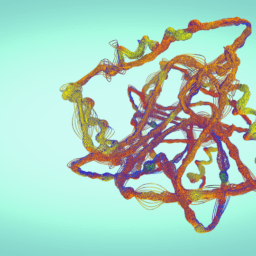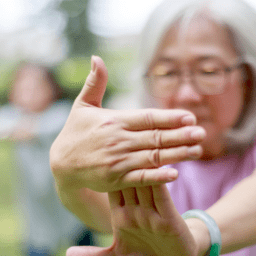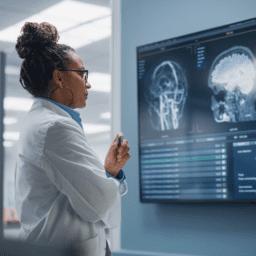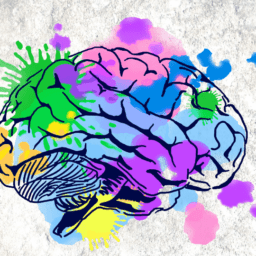Winter is coming, and so are new technologies, treatments, and studies about Parkinson’s. Here are some of the most important articles, podcasts, research, and living well stories that hit the news this month. Let us know if we missed anything important. Happy reading!
PARKINSON’S ARTICLES AND PODCASTS
- A study published in the journal Brain shows that dopamine systems are affected differently in people with Parkinson’s with tremor compared to people without tremor and that this affects cognition as well as motor symptoms. Researchers who explored whether the presence of tremor was associated with levodopa’s effect on reinforcement learning found that people treated with levodopa who did not have tremor had better reinforced learning skills (learning through rewards) than did those with tremor, who did better at avoidance learning (learning to avoid a punishment).
- Research presented at the annual meeting of the Radiological Society of North America explains how a simple eye test, combined with artificial intelligence machine learning technology, could provide early detection of Parkinson’s. The research provides further proof that changes in brain physiology can be observed in the eye.
- A new artificial intelligence tool can recognize, monitor, and track protein movement patterns, analyze data in seconds, and provide standardized methods to ensure consistent data results. This can advance the understanding behind neurodegenerative disorders like Parkinson’s and equip researchers around the world with a tool to help them reach the same conclusions when comparing data.
- Scientists at the University of New South Wales found a strong association between constipation and rapid eye movement behavior disorder (RBD) and future cognitive decline in people, especially men, newly diagnosed with Parkinson’s. The study paves the way for further research into whether screening for constipation and RBD might assist with early detection of cognitive impairment.
- The Michael J. Fox Foundation for Parkinson’s Research has granted $380,000 in extension funding to the California Parkinson’s Disease Registry (CPDR) to be used through June 30, 2021. The registry allows researchers to monitor and identify connections to environmental and chemical exposures and better understand the causes and nuances of Parkinson’s.
- Levodopa, especially and especially levodopa/carbidopa intestinal gel (LCIG), may affect gut bacteria composition and could cause bowel inflammation and possibly spur the progression of Parkinson’s. In a study published in the European Journal of Neurology, researchers suggest that LCIG may “significantly influence the microbiota composition and host/bacteria metabolism acting as stressors in precipitating a specific inflammatory intestinal microenviroment, potentially related to…progression” of Parkinson’s.
- Tennis player and coach Andy Wright shares on the Olympics Channel Podcast how returning to the game after being diagnosed with Parkinson’s at 33 improved both his physical and mental health.
- A recent “When Life Gives You Parkinson’s” podcast episode explores how people with Parkinson’s can be their own best advocates.
PARKINSON’S THERAPIES AND MEDICATIONS
- The latest results from a study published in Nature shows how amyloid fibrils (protein aggregates that form in the brain and are thought to contribute to the death of neuron cells) can be dissolved by molecular chaperones. These “protein folding helpers” work like a machine to dissolve the fibrils. A better understanding of this activity can help researchers develop new agents that target the “chaperone-based cellular defense mechanism against amyloid formation” and gain new insights into how Parkinson’s develops and new forms of treatment.
- The compound DMT (dimethyltryptamine), found in traditional Amazonian ayahuasca tea, may help treat a range of neurodegenerative diseases, including Parkinson’s. Researchers believe DMT may promote the formation of new neurons and also found that it correlates with an improvement in spatial learning and memory tasks.
- Three-dimensional “mini-organ” models of the brain, grown through a fully automated process, allow for the simultaneous testing of thousands of new potential Parkinson’s treatments. Researchers believe this new technology will accelerate drug discovery and lower a large part of the cost of early research.
- “Endurance exercise is the only treatment with evidence for slowing Parkinson’s disease progression,” says Daniel Corcos, PhD, the principal investigator in the SPARX3 study. The study (which our panelists discussed in a recent webinar) will assess whether high-intensity endurance exercise is superior to moderate-intensity exercise at slowing the progression of Parkinson’s in adults who have not begun taking any Parkinson’s medications.
- A new $2 million phase-2 clinical trial will study the effects of a new drug, called NLX-11, in people with Parkinson’s for the very first time. The study will assess whether NLX-112 is safe and well-tolerated by people with Parkinson’s who experience dyskinesia and whether it can reduce dyskinesia, as well as non-motor symptoms such as depressed mood and disturbed sleep.
PARKINSON’S LIVING WELL STORIES
- In a recent TODAY Sunday interview, Michael J. Fox shares details of the conversation he had with his wife, Tracy Pollan, when he told her about his Parkinson’s diagnosis almost 30 years ago. “One of the things I’ll always love about Tracy for is that at that moment, she didn’t blink.”
- Veteran NASCAR driver and team owner Morgan Shepherd, who recently shared that he has been diagnosed with Parkinson’s, is focusing on the positive and making plans for an inspired and successful 2021.
- For the 11th year, Mike Justak’s “PD Shimmers” light show will spread holiday cheer while raising awareness and funds for Parkinson’s.
- At their TITLE Boxing Club in Florida, two veterans living with Parkinson’s keep themselves and others motivated, reciting songs or answering trivia questions as they work out to strengthen their mind-body connection.
- Live well in 2021! Find holiday gifts for a loved one living with Parkinson’s (or for yourself) with ideas from Sherri Woodbridge’s “A Gift Guide for Shopping from Home.”
PARKINSON’S SURVEYS AND CLINICAL TRIALS
Speech and Telemedicine Study – The Purdue Motor Speech Lab
Home Based Tele-exercise Study for People with Chronic Neurological Impairments – Burke Neurological Institute
Parkinson’s and Drooling – European Parkinson’s Disease Association (EPDA)
Parkinson’s and Service Dogs – University of Groningen, Netherlands
Neurology Study Interest Registry – University of Rochester
Park Test – University of Rochester
Project Euphonia – LSVT Global and Project Euphonia
BouNDless – Phase 3 trial to investigate the efficacy, safety, and tolerability of ND0612, a continuous subcutaneous levodopa/carbidopa delivery system in comparison to oral levodopa/carbidopa in people with Parkinson’s experiencing motor fluctuations
WANT MORE PRACTICAL ARTICLES LIKE THIS?
Much more can be found in our Every Victory Counts® manual. It’s packed with up-to-date information about everything Parkinson’s, plus an expanded worksheets and resources section to help you put what you’ve learned into action. Request your free copy of the Every Victory Counts manual by clicking the button below.
Thank you to our 2020 Peak Partners, Amneal and Kyowa Kirin, with special support from Adamas, for helping us make printing, distributing, and shipping the Every Victory Counts manual possible.

















